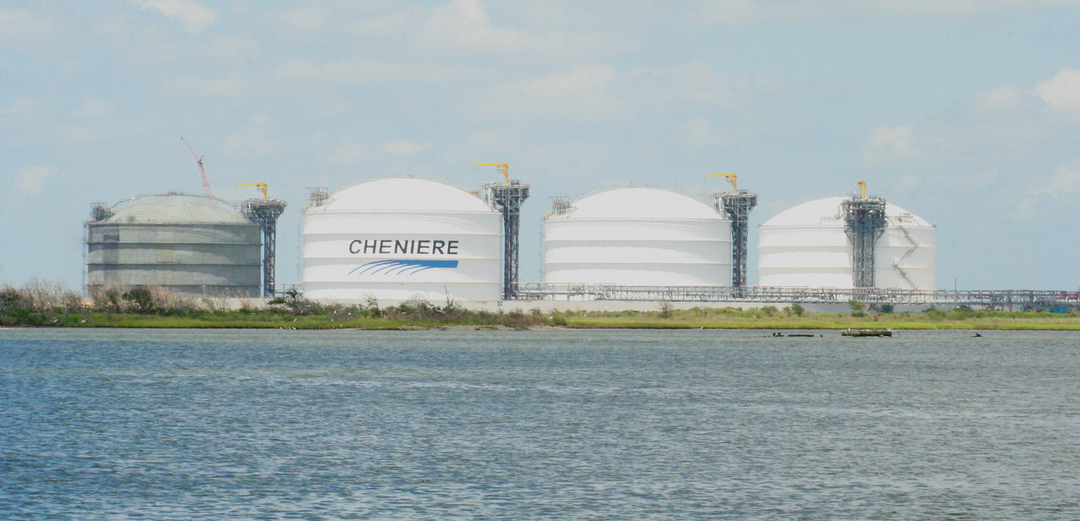
Exposing how LNG terminals in the US are “permitted to kill”
We have known for over a decade just how damaging fracking is to our health. But the health impacts of exporting fracked gas have often been overlooked.

Sabine Pass LNG terminal C: Roy Luck via Flickr
We have known for over a decade just how damaging fracking is to our health. But the health impacts of exporting fracked gas have often been overlooked.
In part this is due to the fact that the US gas industry has been trying to greenwash its gas by arguing it is is the cleanest on the planet, due to third party certification schemes. These claims have been debunked by two reports released by Oil Change International and Earthworks.
A now a new report from our colleagues at Greenpeace USA and the Sierra Club seeks to shine a light on just how damaging LNG plants are to health. According to the report, “Permit to Kill”, the air pollution from existing U.S. Liquified Natural Gas (LNG) export terminals is estimated to cause 60 premature deaths a year, at a total of just under $1 billion to public health.
At the current rate, by 2050, existing LNG terminals would have caused over 2000 premature deaths and caused $28.7 billion in total health costs.
It is worth remembering that LNG plants emit a toxic mix of carbon monoxide, sulfur dioxide, and volatile organic compounds (VOCs). According to the Environmental Health Project, studies have shown that these pollutants are associated with a range of health impacts, including headaches, coughing, dizziness, and other respiratory illnesses.
Exposure to fracked gasses and pollution can also irritate skin, eyes, nose, and lungs. Long-term exposure to these pollutants can lead to heart disease, certain types of cancer, and damage to the reproductive system and internal organs.
Often, those worst affected are poor communities of color, who have faced decades of pollution from the fossil fuel industry, including at LNG terminals. For example, parishes and counties in and around Southwest Louisiana, where a cluster of LNG terminals are located, have the worst air pollution impacts per capita. At the national level, Black and Hispanic Americans would respectively experience air pollution from LNG terminals at 151–170% and 110–129% the rate of white Americans.
These deaths occur under existing rules and regulations because LNG export terminals are permitted to emit levels of air pollution that cause serious health harm for local communities. So LNG terminals are allowed to pollute with the complicity of the regulators who are meant to protect public health.
In 2022, a Reuters review of regulatory documents found that the huge LNG plant at Corpus Christi, in Texas belonging to Cheniere, had “exceeded its permitted limits for emissions of pollutants such as soot, carbon monoxide and volatile organic compounds (VOCs) hundreds of times since it started up in 2018”. Instead of levying fines, the local regulator, the Texas Commission on Environmental Quality, granted Cheniere large increases in the plant’s pollution limits.
Last year the Louisiana Bucket Brigade issued a report that found LNG facilities also underreported and miscalculated pollution events.
All this pollution could get worse if further LNG plants are built. Back in January, the Biden administration announced that it would be pausing pending decisions on liquefied fossil gas (LNG) export applications, a decision that was condemned by industry but welcomed by civil society.
But this is only a pause on further export applications, not those which have already got approval.
As Greenpeace USA and the Sierra Club outline, there are currently 7 operating LNG export terminals in the United States, with another 6 projects currently under construction and a further 8 planned projects that have already received regulatory approval but not yet started construction. All these were not impacted by the Biden “pause.”
Therefore, Greenpeace USA and the Sierra Club estimate that if all the planned LNG terminals and expansion projects are built, then the LNG industry would cause 149 premature deaths and $2.33 billion in health costs per year. But again, if all the proposed plants are built, this rises to 4,470 deaths and a staggering $62.2 billion in health costs by 2050.
For the planet and local population, the US needs to tackle the air pollution from existing LNG plants and stop further expansion. To stop this public health emergency getting worse, the two civil society organizations are recommending that the Department of Energy and Federal Energy Regulatory Commission, FERC, as well as other agencies “should reject any approvals or permits for LNG export projects, as well as related pipelines and compressor stations.”
Moreover the “DOE and FERC should evaluate the cumulative impacts of air pollution from existing and the slate of planned LNG terminals when evaluating the impacts of any specific project on the surrounding communities,” says the report. The Environmental Protection Agency must also develop and enforce more robust controls on the cumulative impacts of air pollution for the most overburdened communities.
Finally, there should be a phasing out of fossil fuel exports, with a commensurate increase in funding for global climate mitigation and adaptation to help importing nations transition to renewables and resist locking-in dependence on LNG.
You can read the report here.
